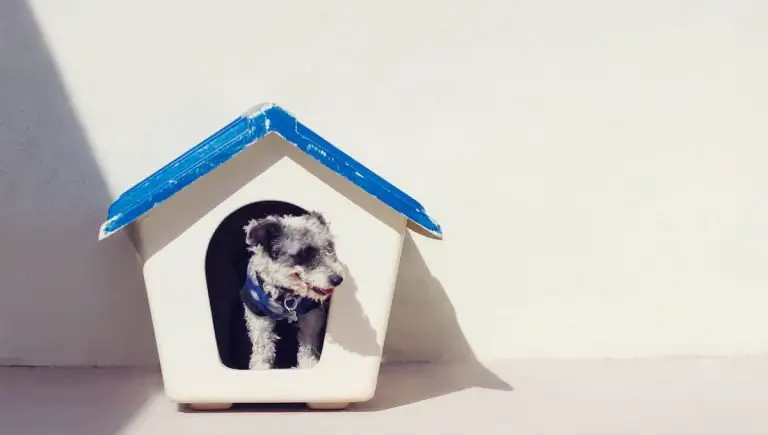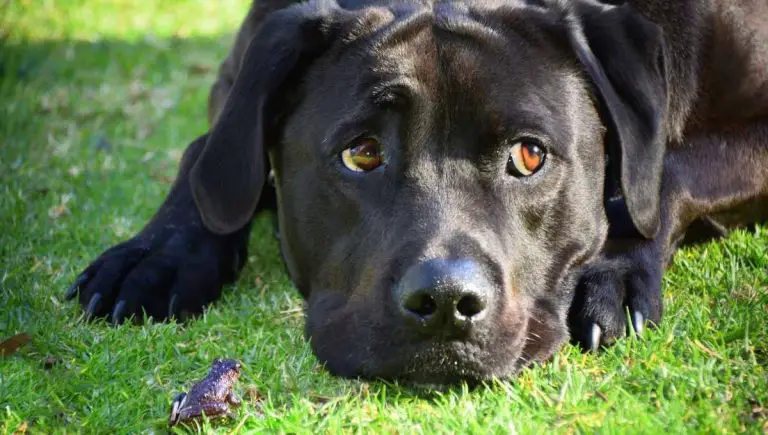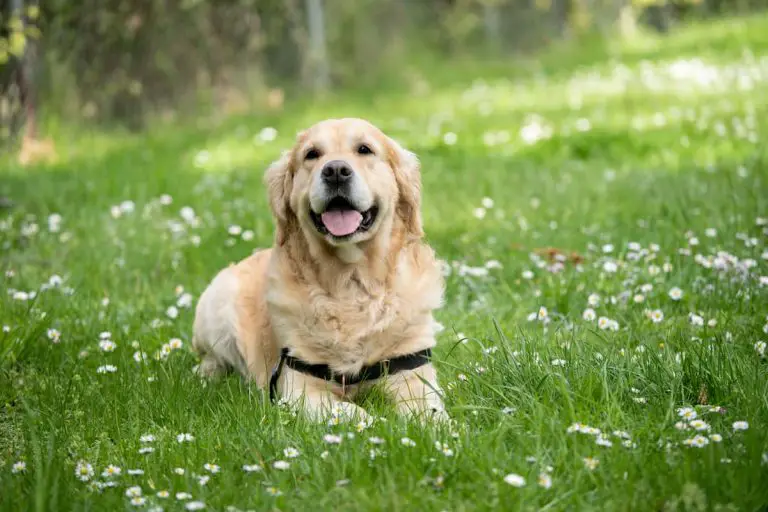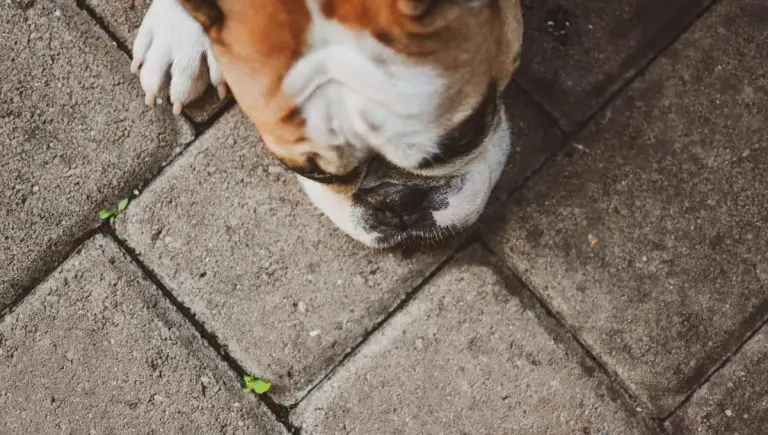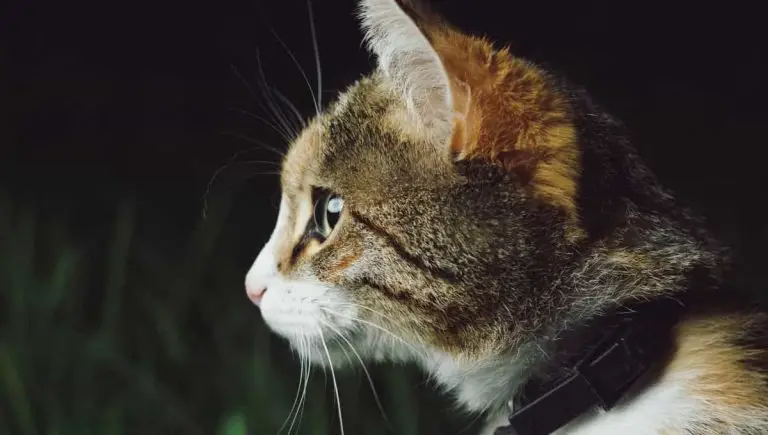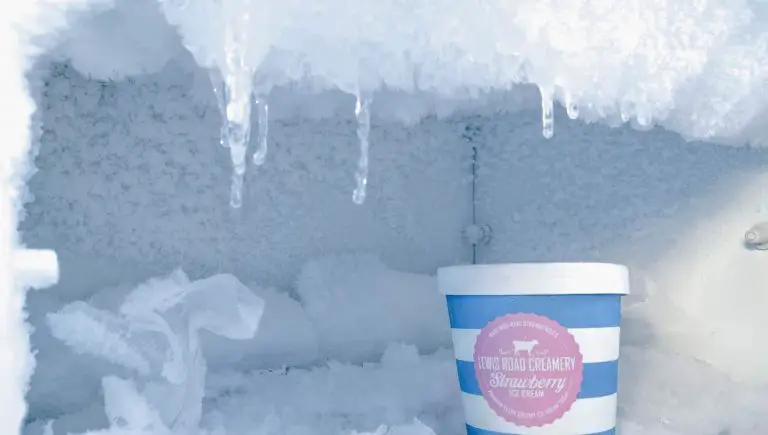What to Feed Deer in Your Backyard to Keep Them Coming Back!
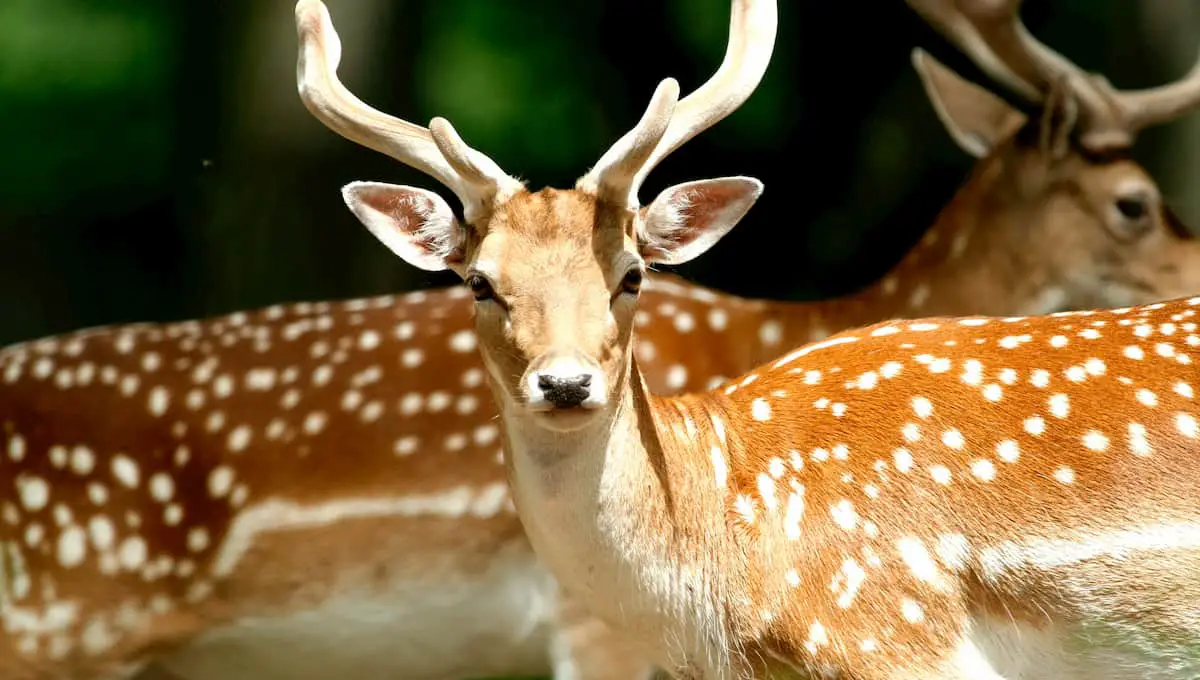
There’s just something serene and majestic about the sight of wild deer grazing on your land. If you’re like us and enjoy feeding these wonderful creatures, you may be wondering what to feed deer in your backyard?
While some may be annoyed by these wonderful animals, many people enjoy having deer on their land and want to keep them coming back. So what should you feed deer in your backyard?
You should feed deer things like: oats, specialty ready made deer food mixes, and legumes. These foods are safe for deer to eat and enjoy. You should not however feed deer things like: corn, hay, human food, and meat as their digestive systems may have issues processing and passing the food.
We’ll try to spare you the exhausting part from this guide, and instead leave you with the ultimate blog post on deer food, and what to feed deer in your backyard instead.
In a very broad sense, deer are herbivores and primary eaters. This means they like to eat plants, nuts, and fruits whenever available (emphasis on the last part).
Here’s a Quick Pro Tip!
If you want to literally have deer eating out of your hand, there is nothing deer love more than Whitetail Institute Imperial Clover Deer Food over at Amazon. It has a sweet taste that leaves them always coming back for more.
You can also setup a Moultrie Gravity Tripod Feeder to automate things.
Because deer are also seasonal feeders, a large part of their diet becomes unavailable or very difficult to find during the cold season. This is the main reason why you will find deer casually strolling through your backyard, which is why knowing what to feed these beautiful wild animals becomes crucial.
With that being said, here’s all the information you need if you’re wondering what deer like to eat.
Is Feeding Deer a Good Idea?
Before answering the question “What do deer like to eat?” it’s important to bring another topic to the table first, which is, should you be feeding deer at all?
The good news is that yes, you should feed deer. This is especially true in the winter months, when their natural food resources are very scarce and they need your help.
However, there are a set of rules one should follow if planning on feeding or attracting deer. The problem with feeding deer consists of two main things:
- People not offering the proper food.
- People not understanding that deer are wild animals which should be handled carefully.
As opposed to treating them like simple wildlife that happens to take a walk through your garden.
For example, an employee of the Inland Fisheries and Wildlife Committee in Maine has written an article on why feeding deer can be dangerous while urging people to follow the proper procedures when feeding deer.
Some of her advice include the following:
- Feeding deer cannot be a one-time thing – If you want to start feeding the deer in your area or if you have attracted the animals willingly, you must continue feeding them until springtime. Or until they can once again find food on their own.
- Do not feed deer human food! – It’s tempting to put out scraps, but they are not healthy.
- Never concentrate the deer feed in one single area. – This will lead to the appearance of predators. You can’t forget that these animals are hunted in the wild!
- Place deer food as far away as possible. – If you live near a road, it might be best to place the deer food as far away as possible, to avoid road accidents.
With all this in mind, we can already start to see that, even though feeding deer is a noble thing to do, the process can be quite complicated.
Complexity aside, let’s soldier on a bit to find out the answer to our question…What do deer like to eat?
What do Deer Eat?
One of the main things you need to know about deer is that they are called ‘Concentrate Selectors.’ This will help you understand better what to feed deer in your backyard. But what does that mean exactly?
Deer are a special type of herbivore which like to extend their necks and muzzles high up into the trees. This is where they find certain parts of foliage and plants which they like the most.
Doing this is what makes them ‘selectors.’ Oftentimes, deer usually prefer leaves and stems because they are the most succulent.
The second thing you need to understand about deer is that they are ruminators. In other words, deer eat very fast when in the presence of food but will ruminate it later on.
Deer are also seasonal eaters, not by preference but mainly because their food depends on the season.
What do white tailed deer eat?
- Browse – The best part of a deer’s diet is made of what we call ‘browse.’ That means young trees and shrubs where they find the leaves and stems mentioned above.
- Mast – Second on the list for a deer is mast. This is what the category of nuts, acorns, and fruits is called. They are very important in the animal’s diet because they are packed with energy.
Therefore, deer will always go for them during months with low temperatures or when they are growing antlers.
If you want to know what to feed deer fruit wise, go for mulberries, grapes, plums and blackberries during the months when they are growing. Switch to pears and apples in the fall when the deer are trying to store fat for the winter months.
- Acorns and Chestnuts are the most important nuts in a deer’s diet. Please do not attempt to introduce other nuts and seeds into their food, especially exotic ones!
Out of the two, deer will always prefer chestnuts given their lower content of tannin which tends to slow down a deer’s digestion.
- Grass – contrary to popular belief (and Disney movies) whitetails and deer in general don’t really go for grass if they have any of the aforementioned foods available instead.
Deer will only ever try grass in the fawn stage of their life, seeing as grass is easier to digest. That being said, would you ever catch a deer eating grass? Maybe, but probably not if they have tastier options. It really just depends on what’s available to the deer at the time.
- Cereals – this includes oats, rye, and wheat. Once again, as surprising as it may seem, deer don’t go for them simply because they can’t digest cereal. However, there are certain strains of grain that have been specially grown to be easier on the stomach both for humans and animals.
You might also enjoy our post on How Short to Cut the Grass Before Winter
What Is the Best Thing to Feed Deer?
We have a list of what deer love to eat when in the wild. Now, let’s see what attracts deer the most, and what you can feed them when they come knocking on your backdoor!
- Oats – this is a very simple and budget friendly supplemental food you can offer to deer in your backyard. Oats have both carbohydrates and fiber in a balanced ratio, which means they’re healthy for the deer population.
- Ready made food mixes for deer – they must contain oats, corn, alfalfa, molasses, soybeans, as well as minerals and vitamins. Please check the packages before buying them to make sure all these ingredients are included!
If you cannot find these ready-made mixes in the shape of pellets, you can also feed horse, goat or rabbit food to the deer. However, they must have at least 12% protein. So, once again, carefully read the labels!
- Legumes – this includes black eyed peas, soybeans, and purple hulled peas. They make a great option in terms of what deer like to eat because they are very easy to digest. However, you should know they also tend to cost more than your average feed.
If we were to ask some people what a deer’s favorite food is, many would say cottonseed (not on its own but usually as a meal or in cakes). People have been feeding cottonseed to their livestock for many years seeing as it is rich in vitamins as has a few proteins.
However, there have been studies performed on white tail deer showing that feeding them cottonseed on a regular basis could lead to negative side effects. This includes a lower sperm count and a reduced antler mass. Therefore, you are advised to proceed with caution when feeding cottonseed to deer.
What Not to Feed Deer
- Corn – please do not rely on an all-corn diet if you plan on feeding the deer in your area. Corn is highly acidic which will kill the microorganisms deer need to digest their food.
- Hay – as weird as it may sound, hay is one of the plants deer hate. They cannot process or digest hay in any way. As a matter of fact, there have been many cases in which deer have died starving while still having hay in their stomachs simply because they can’t pass it.
- Human Food or Scraps From Your Table – it could be tempting or a way to dispose of your own waste. But remember that deer are different from cows or pigs. They cannot process scraps.
- Animal Remains – under no circumstances should you ever feed them meat or remains from your own table that involve other animal produce. Always ask yourself what do deer like to eat in the wild? This is not it!
Advantages and Disadvantages of Feeding Deer
Seeing as deer are first and foremost wild animals, there will always be both pros and cons to the idea of feeding them or attracting them into your backyard for that matter.
Here’s what both sides have to say on the topic of how to get deer on your property.
Advantages
- You can supplement their food in wintertime when it becomes hard for the animals to find their own nourishment.
- Feeding them also means helping the deer through the months when they are growing or developing antlers.
- Making sure they find the appropriate food instead of relying on unhealthy sources of feed.
- Helping fawns make it through the winter.
Disadvantages
- Getting involved in the natural selection process could lead to an overpopulation of deer that might easily get out of control in a few years.
- Once the feeding process starts, you cannot stop it because the deer rely on you as a source of food. Therefore, you need to make sure you have the budget necessary to provide such a large quantity of deer treats.
- Deer are known to cause property damage. Therefore, be prepared for that when you welcome them to your backyard.
- You can be susceptible to diseases and ticks if you come in close contact with them.
Tips on How to Feed Deer in Your Backyard
When asking yourself what do deer like to eat or if you’re considering the idea of how to attract deer to your yard, one of the first things that comes up is a set of rules you should follow.
As beautiful and elegant as they are, it’s always a good idea to remember that they are wild animals who need to be treated as such. So what are these tips and rules you ask?
- Lay out the food at dawn and dusk. This is when deer are most active.
- Make sure to put out as much food as you possibly can. If the deer you are trying to feed don’t find enough nourishment, it will lead to violence among the animals who are now competing for the resource.
- Do not set out all the feed in one place. It will quickly teach the predators (such as wolves, coyotes, and even bears) where you and the deer are.
- If you have dogs, they can turn into predators themselves and start hunting the deer.
- Be prepared for some property damage to your fences and landscape. The deer will not differentiate between your shrubberies and flowers and the ones in the wild.
- If you can, spread out the food in different locations. Deer should not spend too long together as they are susceptible to diseases.
How to Attract Deer to Your Backyard
If you’re looking to attract deer to your backyard, you could always take a page out of Snow White’s book and try singing until the deer show up.
Just in case that doesn’t work, there are a few other more realistic tricks you can use if you’re looking for the best deer bait:
- Create a water source for them – This can be a little plastic kids’ pool or even a stone birdbath. Just expect it to get a little damaged in the long run because deer are wild animals.
This is the best way to attract deer because they will always return to a location where they have plenty of fresh water in supply. But, even if you now know how to attract deer fast, it doesn’t mean it’s safe.
Place the water source as far away from your house as possible so as not to scare the deer.
- Set up some mineral blocks in your backyard – This is the best way to attract deer fast because they will immediately go for the minerals which they need for antler growth and a healthy lactation process.
- Make sure your backyard is very calm – One of the most common known facts about deer is just how skittish they are. They get frightened by everything, and loud noises is number one on that list. Therefore, if you want to know how to attract deer without baiting, learn to keep your garden as serene and quiet as possible.
- Remove the fences of your property – This might sound like a bit of a stretch but if you want to know how to keep deer coming back, it’s a great idea.
The logic behind it is that it won’t matter the quality of the food you set out if you make them jump over tall fences to get it. They simply won’t do this because it does not resemble their natural habitat.
- Don’t install bright lights – The best way to attract deer is not to have super bright lights anywhere near your house or in your backyard. They will be scared of the lights just like they’re scared of loud noises. Think ‘deer in the headlights’ and you’ll understand!
- Put out a salt lick for them – We’ve already seen what the best food to attract deer is. If you want to know how to lure deer, then simply provide them with salt.
The animals will smell it no matter how far they are and they will come to your garden. Not just that, but if you’re wondering how to keep deer on your property, then you’ve hit the jackpot. This is because once the deer have discovered you’ve got salt to spare, they’ll just keep coming back.
What to Plant to Attract Deer to Your Yard
Let’s talk about cheap ways to attract deer. Namely the best thing to plant for deer so that you can attract and feed them at the same time. Here are some great ideas for you!
- Shrubbery – if you have a backyard then you probably already have shrubbery. However, if you’re wondering what to plant for deer in the spring, the answer is increase all the shrubbery you already have.
The deer will be attracted to all the free grazing they can get off it and come to your garden.
Pro Tip – plant tall shrubs or even trees. They will spread seeds much further than low shrubs and cause additional natural growth.
- Bluegrass and Fescue – in case you were wondering what to feed deer other than corn, these grasses are a perfect alternative. I know, I know, we said deer don’t usually like grass, but it’s really a situational thing.
If you plant these grasses you’ll learn how to attract deer to your land in no time, because they simply love to nibble on these greens when they can. Make sure they are free of pesticides, though!
- Ferns – Deer in backyard? No problem. Plant some ferns in very shady places and keep them thriving. As a response, the deer will keep coming back!
Useful Tidbits – What are the best trees to plant for deer and turkey? – crabapples, red oak, white oak, persimmons, and honey locust.
What to Feed a Baby Deer
If you’ve ever watched the movie Bambi and felt incredibly sad when Bambi was left all alone, you’ll likely remember the feeling if you ever stumble upon a baby deer that’s all by itself.
If you happen to find a Bambi of your own and need to care for it, what do you do? And what do you feed a baby deer? Let’s answer those questions!
First of all, in case you were wondering what do you call a baby deer, the answer is a ‘fawn.’
The first thing you need to know is that if you find a fawn on its own, that does not mean that it has been abandoned or that something has happened to the doe.
Fawns are typically left alone but their mothers are still close by watching. Therefore, if you encounter a fawn alone, please leave it there.
You can keep an eye on it for several hours, though. If you do not see any contact with a doe, if the fawn does not feed or if it appears to be cold, that’s when you can collect it.
Also, if you encounter a fawn alone, please do not touch it! A doe will go to extreme lengths to remove all scents from their fawns so that predators won’t be attracted to them. Touching the fawn will only ‘mark’ it.
I Found a Fawn – How Do I Take Care Of It?
If you have been watching the fawn for several hours and the doe has not been in contact with it, you can take it. Just remember to always use gloves and call your local wildlife rehabilitator.
In the meantime, what do baby deer eat? Goat milk is the perfect replacement for deer milk until you can return it to the forest. You will have to mix each container with a few drops of lactate to make it as close as possible to what they would receive from the doe.
This also works for those wondering what to bottle feed a baby deer.
What Do You Feed a Baby Whitetail Deer?
If the fawn is newborn, stick to the milk and lactate formula. If it’s somewhat older, you can also mix in some organic oats. Stir it until it comes to a porridge consistency and feed it to the fawn.
How to Feed a Baby Deer
If the fawn is larger in size, you can also incorporate some slices of sweet fruit such as a banana or apple. The high sugar content will help them feel better.
What to Feed Deer in Winter – Can I Buy it?
Of course you can! In fact, you might be better off buying it because store bought deer food is healthy, safe, and already has all the protein, vitamins, and nutrients they need. Here are some great examples.
Whitetail Institute Imperial Clover Deer Food

This super attractant is a very simple product but one you will find very efficient for the deer population in your area. It has been enriched with proteins and vitamins, not to mention it has that sweet taste that deer love so much.
Plus, the Apple Obsession Deer is very easy to use. All you have to do is pour it right on the ground as is or mix it with some oats. It has 24% protection and it will boost the deer’s energy levels.
Pros
- Super simple to use
- Can be used on its own or mixed with other types of feed
- Has proteins and vitamins
Cons
- Might take a little while for the deer to get used to it.
Check current price right here: Whitetail Institute Imperial Clover Deer Food
Whitetail Institute Imperial “No-Plow” Food Plot Seed
This fantastic mix of seeds is made of grains, brassica, clovers, lettuce, and radishes. In other words, the plants that deer eat. The combination has been proved to attract deer and keep them coming to your garden. Therefore, if you were wondering how to attract deer to your property, you have just found the perfect way!
One of the great things about this plot seed mixture is that you can either plant it in a seedbed which you have already prepared or in one that has had minimal preparation time. They will still grow and you will have food to attract deer.
Pros
- They require minimal soil preparation
- The food is proved to attract deer
- You can plant these yourself in your backyard.
Cons
- You will need enough space to plant this crop in.
Check current price right here: Whitetail Institute Imperial “No-Plow” Food Plot Seed
Wakefield Virginia Peanuts for Deer, 25 LBS

These are unsalted peanuts in the shell variety, which you can feed to your deer as a supplement to their feed. There are many people who wonder how to attract deer with peanut butter because they’ve heard about that old trick. But the best thing to do would be to leave out some natural peanuts for them instead.
Peanuts are very high in good fats as well as protein and they will help deer during the months when they need to store fat in preparation for winter. On the plus side, you can also use this product to feed other types of wildlife in your backyard. This includes squirrels, raccoons, and chipmunks.
Pros
- Healthy and helps deer prepare for winter
- Can be used to feed other animals as well
- Natural and unsalted
Cons
- Cannot be used as a single source of food for deer
Check current price right here: Wakefield Virginia Peanuts for Deer, 25 LBS
What Is the Best Deer Feeder out There?
Here are some fantastic examples of great deer feeders you can use in your backyard.
- Moultrie Feed Station – it has a 30 lb. capacity and is made of resistant plastic.
- Moultrie Pro Magnum Deer Feeder Kit | All Metal Housing – it has a battery indicator and vermin guard.
- Wildgame Innovations Pail Camo Steel Feeder – it has a 50 lb. capacity and is made of a steel material.
FAQs on What Do Deer Like to Eat
Let’s do a lightning round on what do deer like to eat. Here are all the answers you need to all the FAQs you’ve always had.
Yes, they do. They eat the entire plant, blossoms, stems, leaves and all. Watch out at night because that’s when they do their prancing and eat your beautiful flowers!
Yes, they do. In fact, the high sugar content in apples is healthy for them and it helps them during the autumn months when they are trying to store fat for winter. In case you’ve ever wondered what to feed deer instead of corn, apples is the answer!
Only when they are fawns because grass is easier to digest. However, adult deer never choose grass by themselves. Therefore, do not feed them grass or hay for that matter.
No, they do not. White bread is toxic for deer because it can lead to a condition called lacticacidosis. Even a few slices of bread can be potentially deadly for deer due to life threatening amounts of lacticacidosis. Therefore, please do not feed deer white bread!
The scent that will attract deer the most is doe urine. But, if you don’t have any on hand (because… why would you?) try scents like apple and orange. These should attract deer just as well.
Just like we’ve seen above, deer absolutely love roses. But they will also eat holly, dogwood, and juniper when they can get it. Therefore, if you have these plants in your garden, beware of deer.
Deer will stay away from poisonous plants which include foxgloves, poppies, daffodils, and monkshood. They also won’t eat any flowers that are very fragrant, like: lavender, irises, salvia, sage or peonies.
Final Thoughts
If you’ve made it to the end of this guide, you can probably tell by now that just knowing what deer like to eat is only scratching the surface of what you need to know.
It’s important to also understand what you shouldn’t feed deer, what to feed a baby deer fawns, how to attract deer, and so much more.
Deer are complicated wild animals. If you’re interested in feeding deer, it’s important to make sure you’re feeding them the right foods.





